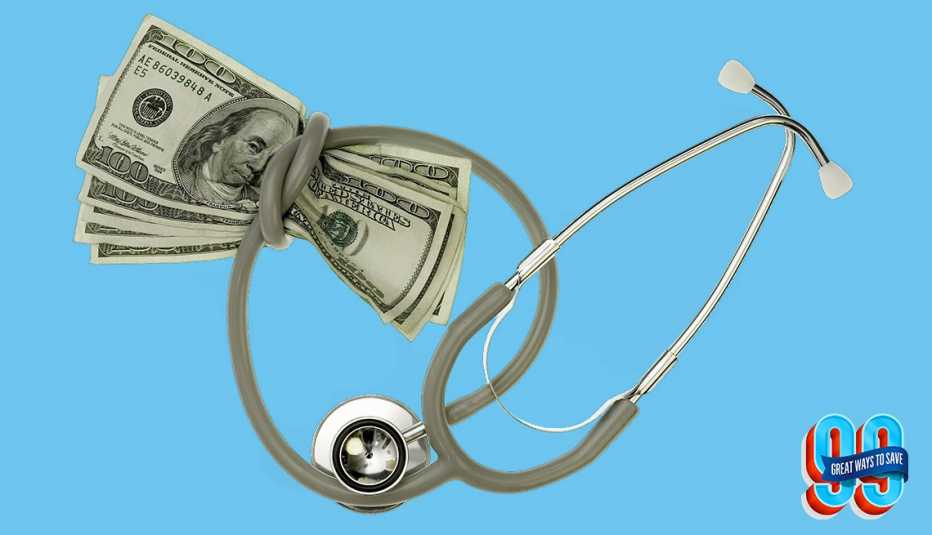Staying Fit


1. Use baking soda for indigestion. Packaged remedies like Alka-Seltzer are largely baking soda (sodium bicarbonate) and aspirin. So if you don’t have a headache, drink ¼ teaspoon of baking soda dissolved in ¼ cup of water. Save $8 per 36 doses.
2. Buy pills to split. Ask your doctor if it’s cheaper to get half the amount of double-strength medication and split each pill into two doses with a $5 device. For instance, 60 tablets of the 20mg Paxil cost $14.17 at Costco, according to GoodRX.com, but 30 tablets of the 40mg Paxil cost $11.87. You could save $80 to $100 a year.


AARP Membership— $12 for your first year when you sign up for Automatic Renewal
Get instant access to members-only products and hundreds of discounts, a free second membership, and a subscription to AARP the Magazine.
3. Join Silver Sneakers. Ask your health care provider if you are eligible. The program offers free gym memberships to folks 65-plus. Save $700 per year, on average.
4. For some meds, skip your insurance. Ask your pharmacist about the retail price of your prescription medication; it might be cheaper to pay that price. For example, the diabetes medication metformin costs about $4 for a month's supply, while the average copay is $11. Savings: $7.
5. Suspend your gym membership this summer, and take your exercise outdoors. You'll save around $58 a month.
6. Check supermarket pharmacies. Some national chains and discount stores offer common medications for free. If your deductible is $10, you'll save $120 a year on just one prescription.
7. Stream fitness classes online. Online fitness classes such as Daily Burn, Crunchlive and YogaToday typically cost around $15 per month for unlimited access — about what you'd pay for a single in-person class. Use a $15 subscription 12 times a month and you'll save $165. Plus you get to decide when class starts.
8. Buy glasses online. It can be 70 percent cheaper to buy at sites such as zennioptical.com than at a store. That's $210 off a $300 pair of specs. AARP members can save at EyeMed.
9. Shop around for meds. Area drug prices can vary widely. For example, a customer in Raleigh, N.C., was quoted $249 at a national chain for duloxetine. Costco charged $43 for the same prescription. Savings: $206.
10. Get help on drug costs. Medicare beneficiaries may qualify for the Extra Help program to cover prescriptions. Savings: up to $4,000 a year. Apply at socialsecurity.gov/extrahelp or call 800-772-1213.
11. Call in a medical bill negotiator to review your bills for errors and overcharges, and save up to $3,000.
12. Apply for free meds. Through the Partnership for Prescription Assistance (pparx.org), qualified patients can get help. A free 120-day supply of the diabetes drug Victoza would save $2,096.

































































More From AARP
99 Great Ways to Save
How to beat inflation and find lower prices on nearly everything
10 Ways to Save Money on Food
Follow these tips to lower your grocery and restaurant costs